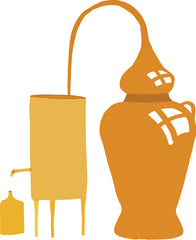At Tender Essence we love essential oils. That’s the reason we sell them! They are one of the most versatile natural products around and are available in a huge range of scents with hundreds of different uses. They smell great, boast a whole range of aromatherapy benefits and are one of the best ingredients for creating natural cosmetics. They’re wonderful, but if you’ve just discovered these powerful scents you might be wondering – what exactly are essential oils?
What Are Essential Oils?
Essential oils are natural plant extractions, each one from the fruit, leaf, flower, seed, bark or root of a different plant. They bear the scent of the plant they come from, along with their own unique effects. Sometimes called aromatherapy oils, they’re the tool of choice for aromatherapists, who utilise their unique properties for relaxing or stimulating body and mind. They’re a wonderfully natural alternative to some potentially harmful chemical fragrances and air fresheners. You can also find out about the difference between essential oils and fragrance oils here.
How Are Essential Oils Made?
 There are two main methods of extraction that are used – distillation and expression. Distillation involves passing steam through raw plant material to extract the aromatic compounds. This vapour is then cooled and the water and oil separated, leaving you with the essential oil. Expression is used to obtain citrus oils (such as lemon or orange). The peels are soaked in warm water or pricked, then pressed mechanically. The liquid and pulp are then separated, which leaves you with juice and essential oil.
There are two main methods of extraction that are used – distillation and expression. Distillation involves passing steam through raw plant material to extract the aromatic compounds. This vapour is then cooled and the water and oil separated, leaving you with the essential oil. Expression is used to obtain citrus oils (such as lemon or orange). The peels are soaked in warm water or pricked, then pressed mechanically. The liquid and pulp are then separated, which leaves you with juice and essential oil.
What is the Difference Between Essential Oils and Absolutes?
Absolutes (such as Jasmine, Blue Lotus and Violet Leaf) are oils that have to be extracted using solvents, from plant matter that is more delicate and not suited to steam distillation or expression. While not technically essential oils, they share a lot of the properties – such as their strong, characteristic smell and use in aromatherapy. Absolutes have a much more concentrated aroma than essential oils, but the process of extracting them is more complex, which is reflected in their price. To counteract this, we offer our absolutes at 5% and 10% dilution in carrier oil, which makes them much more cost effective for you to try. Otherwise they would be £38 a bottle!
What Are Essential Oils Good For?
Essential oils (and absolutes) have a huge range of uses and benefits. They each have their own unique and wonderful scent, which is great for adding natural fragrance to a room or product. Because our sense of smell has such a power over emotions, you can use them to relax or stimulate, soothe or energise. If you want to know more, we’ve got a whole article on aromatherapy on our blog.
Some essential oils are good for skin and hair. They can be used to make a variety of cosmetics and gifts, including moisturisers, soaps and candles. There’s so many different possibilites, which is why we released our book Bright and Beautiful – Making Your Own Natural Cosmetics, packed with recipes and tips, including a helpful essential oil guide. You can also find lots of suggestions and recipes here on our blog!
Safety With Essential Oils
This is the important bit. As brilliant and natural as they are, essential oils are very strong substances that can be potentially harmful if used without following the proper safety guidelines. To ensure our customers stay safe, we always give them the following safety information:
Essential oils are for external use only, not safe for consumption. Avoid contact with eyes. Do not use on children, pets, when pregnant, breastfeeding, or while on medication. Always keep out of reach of children. Essential oils should not be used instead of seeing a doctor for medical advice. Never self-prescribe and if in doubt please ask your doctor. Do not use on sensitive skin and always do a small patch test of the oil before use. If an allergic reaction occurs, wash the affected area with soap and water, then seek medical attention. Never use any oil neat on the skin, always dilute first.







Leave a comment